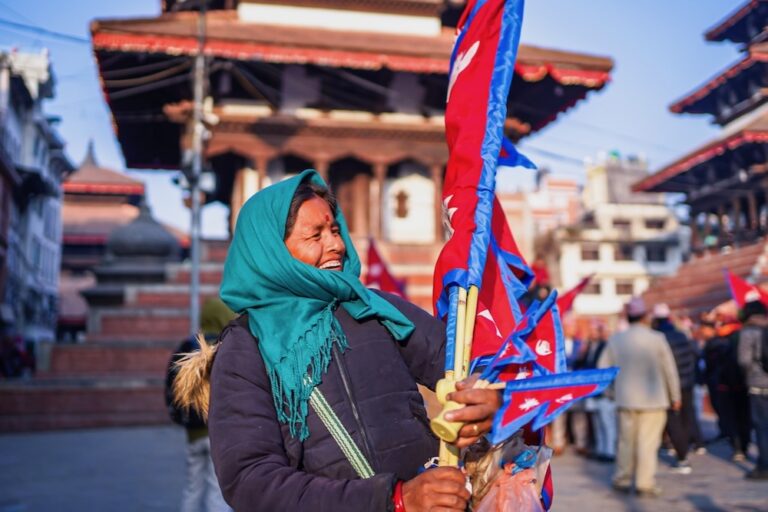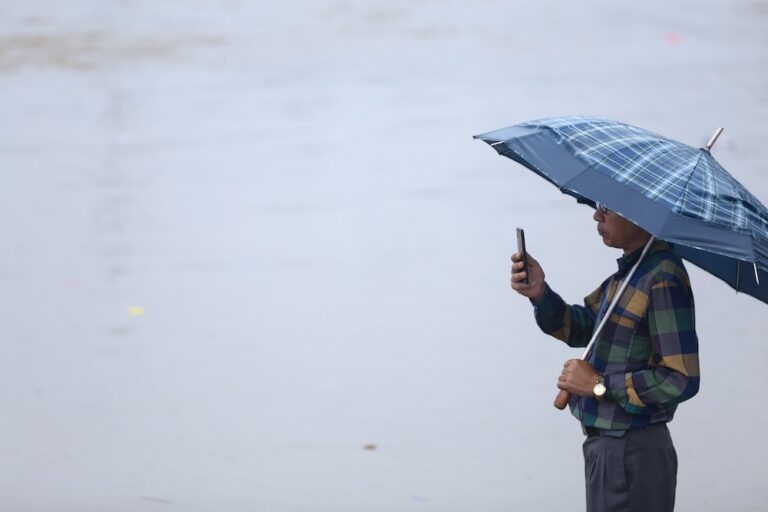In analysing recent trends, Freedom Forum, a Nepali non-governmental organisation, found that the media environment has been negatively affected by a split in the largest political party and by poor working conditions.
(Freedom Forum/IFEX) – In this analysis of recent trends, Freedom Forum notes that the Nepalese media environment has been negatively affected by a split in the largest political party and by poor working conditions.
Following the 2006 democracy movement, also referred to as the People’s Movement II, Nepal observed a sharp increase in the number of media outlets. Subsequently, with the restoration of democracy, the radical change in the political system and the state’s media friendly policies, the media’s prominence grew. Despite that spurt, however, Nepal has been experiencing a gradual decline in terms of journalists’ rights, freedom of expression and the right to information. In particular, media entrepreneurs have become hostile towards the journalists they employ, which has negatively impacted on journalists’ professional rights and their ability to practice a free and fair journalism.
– The number of press freedom violations dropped significantly in recent months. This is due to the slower pace of political and legislative developments following the dissolution of the Constituent Assembly on 27 May 2012 and more recently due to various holidays celebrated in Nepal.
– There is gross political intervention in the media thereby violating people’s right to information. The largest political party in Nepal, the Unified Communist Party of Nepal-Maoist (UCPN-Maoist), has always been hostile towards media freedom. Recently, due to a split in the party, the media run by the party have faced disruptions or been shut down. As a result, a number of journalists have lost their jobs and people’s right to information has been violated.
Radio Paschimanchal in Palpa, a district in the western region of Nepal, was disrupted for 10 days due to a dispute among its owners. The station, which is run by the UCPN-Maoist, stopped airing because of the split in the party. The splinter Communist Party of Nepal-Maoist (CPN-Maoist) and the UCPN-Maoist engaged in a dispute over the division of the party’s properties which also resulted in the disruption of the FM Radio. The Maoist parties tried to maintain control over the media.
– Similarly, the owner of Triveni FM in Chitwan, a district in the southern plain of the central part in Nepal, unexpectedly suspended two journalists – Anil Dhakal and Subash Pandit. This is a gross violation of the Working Journalists Act. However, the journalists were eventually re-instated due to the mounting pressure from a number of concerned media bodies.
They were dismissed because they demanded an increase in their salary as per a provision set by the Minimum Wage Fixation Committee envisioned by the Act. It is a representative case as dozens of TV journalists have not been paid for a long time. This has had a direct negative impact on journalists’ professional rights and security. As a result, morale in the journalistic community is on the decline. As such, it is worth quoting Surya Khadka, a programme officer for a development organisation, who wrote on 31 October, in the …Sourya national daily: “Non-professional owners dominate televisions . . . Most of the TV channels have not paid their working journalists for three to six or 12 months . . . Once a television is closed, 100 journalists become jobless.”
– The growing hostility between media entrepreneurs and working journalists stems from the fact that the entrepreneurs have disobeyed the Working Journalists Act and the recommendations of the Minimum Wage Fixation Committee which has fixed a minimum salary for journalists. What it indicates is that such a negative atmosphere in the media will jeopardize media freedom and professional journalism. Until the journalists are professionally secured, they cannot serve people well and ensure that their right to information is upheld.
– The reason behind the strife between working journalists and their employers can sometime result from journalists disobeying professional ethics as well.
– The UCPN-Maoist and its splinter CPN-Maoist party must respect journalists’ rights and people’s right to information. Any attempts to maintain control over media outlets is an act that is abhorrent in a democratic society.
– As the number of journalists becoming impacted is growing, this may lead to negative consequences for the media owners and have a further detrimental effect on the media environment. Media entrepreneurs should therefore be mindful of press freedom and journalist’s rights. Similarly, journalists’ adherence to media ethics is equally important, Freedom Forum concludes.


